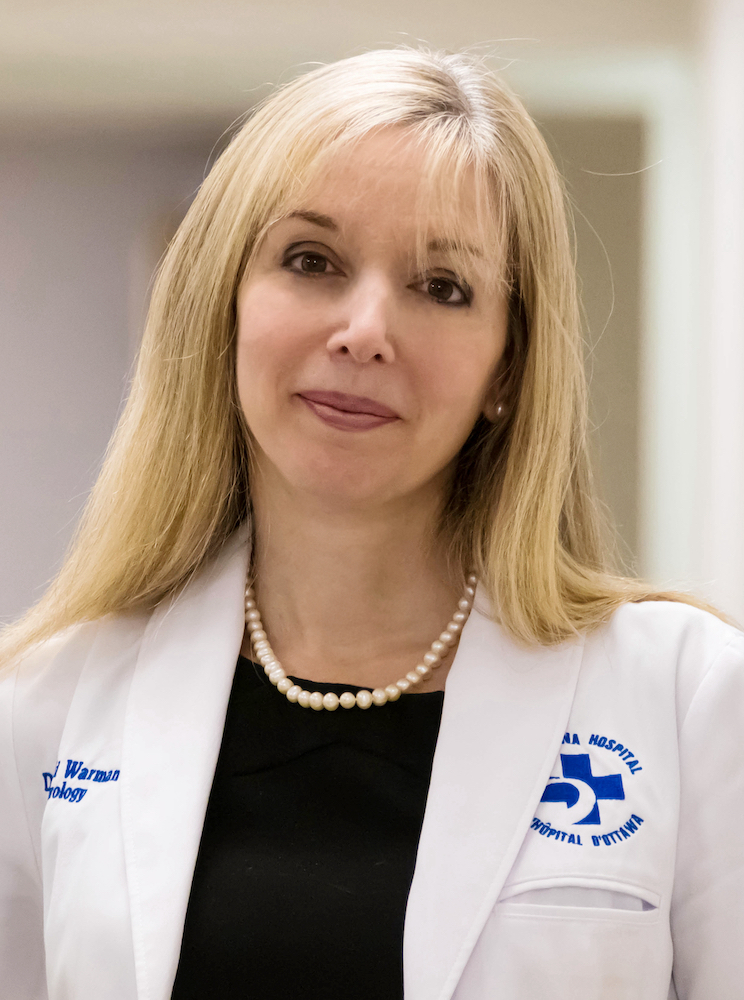As a clinician-scientist at The Ottawa Hospital (TOH)’s Neuroscience Program, Dr. Jodi Warman says having the chance to work with patients every day drives much of her research.
This blending of research within real-world clinical settings facilitates the most timely, profound, and effective improvements in diagnostics and treatments for patients dealing with a range of neurological issues.
The Ottawa Hospital is a global leader in research but the reality is that many of the hospital’s basic neuroscientists don’t currently have the opportunity to meet and interact with patients in a clinical setting.
The infrastructure to consolidate the hundreds of researchers and physicians currently scattered across the city simply is not available.
That is until the brand-new neuroscience institute opens at TOH’s new, 50-acre campus.
‘A game changer’: Merging cutting-edge research with frontline clinical treatments
Dr. Warman says the future neuroscience institute will propel these activities to the next level by further integrating research within the hospital’s clinical setting by bringing together brain-related research and clinical care at the new campus.
“With clinicians, scientists, and patient groups working together, we’ll be able to diagnose patients faster, and together find the answers to transform their care more readily,” she explains. “Basic researchers and physician scientists will be integrated better as part of the hospital’s everyday work.”
That’s critical to developing the most exciting and promising clinical trials.
“Many breakthroughs are not just from physicians in their clinics or scientists in their labs. It’s only when you bring them together that you can discover why certain patients respond to treatment, or why certain patients have less severe disease, and use that as a potential therapy.”
This is the true definition of personalized medicine.
Attracting the ‘best and the brightest’ researchers to The Ottawa Hospital
The new neuroscience institute will provide a hub for brain-related researchers, clinicians, and other staff. Once fully operational, this hub will be one of the strongest of its kind in the world.

That’s great news for people in Ottawa and the referral region including eastern Ontario, western Quebec, and Nunavut, Dr. Warman says – and not only because such an institute will attract the “best and brightest” from across the country – and the world – to the city, which will bring profound socioeconomic benefits.
The institute will also help accommodate innovative clinical trials thanks to its advanced equipment for testing, clinical response, and lab work, combined with its capacity to keep patients either overnight or on an outpatient basis.
And it will help researchers develop new therapies to address previously untreatable conditions, along with determining which patients may respond best to specific therapies – an essential method of improving treatment efficiencies while providing life-saving care.
“Many diseases that were not treatable a few years ago now have new treatments available, changing the lives of these patients,” she explains. “These are very expensive therapies. To have a cutting-edge neuroscience institute in the city means we’ll have the most exciting new therapies right here in Ottawa.”
Benefiting Ottawa residents, and beyond, through translational research
The new neuroscience institute will also help with what Dr. Warman calls “translational research”. Also known as “bench-to-bedside” medicine, translational research deploys discoveries directly into clinical settings to help patients benefit from innovations faster and more efficiently.
Such translational research is a vital tool in confronting the 7,000 genetic diseases out there – a number that rises annually, Dr. Warman explains.
The Ottawa Hospital is a world-leader in translational research thanks to unique facilities such as its Biotherapeutics Manufacturing Centre.
“It just makes me feel so optimistic for the future and for patients,” she explains. “These are devastating neurological diseases. With the new neuroscience institute, Ottawa residents and beyond will see the benefits of bringing cutting-edge therapies from around the world to Ottawa and also the fantastic new discoveries we make at TOH. We’ll be able to find a cure, and say we found that cure right here in Ottawa.”

